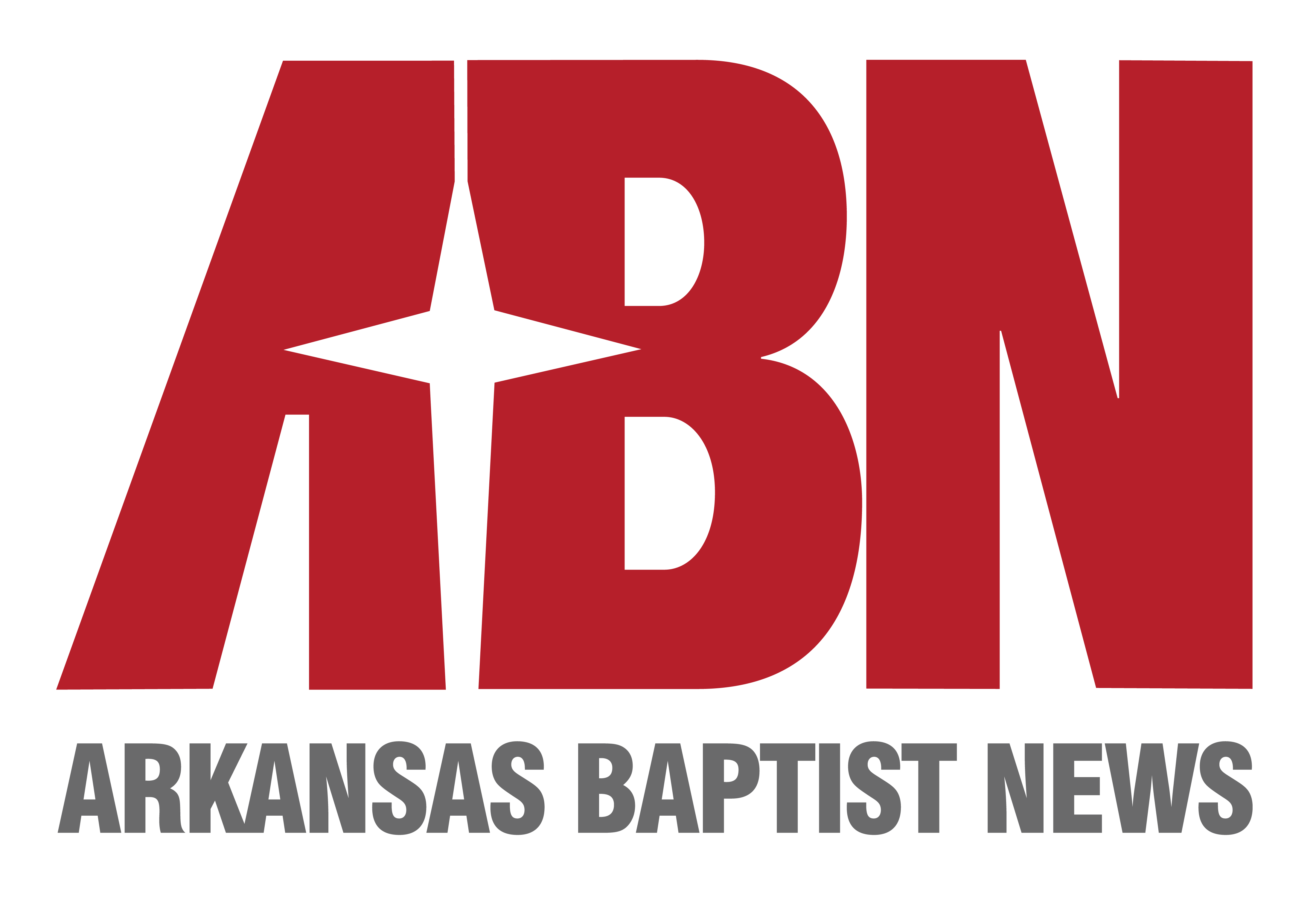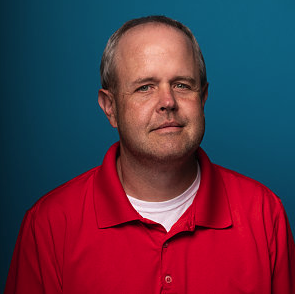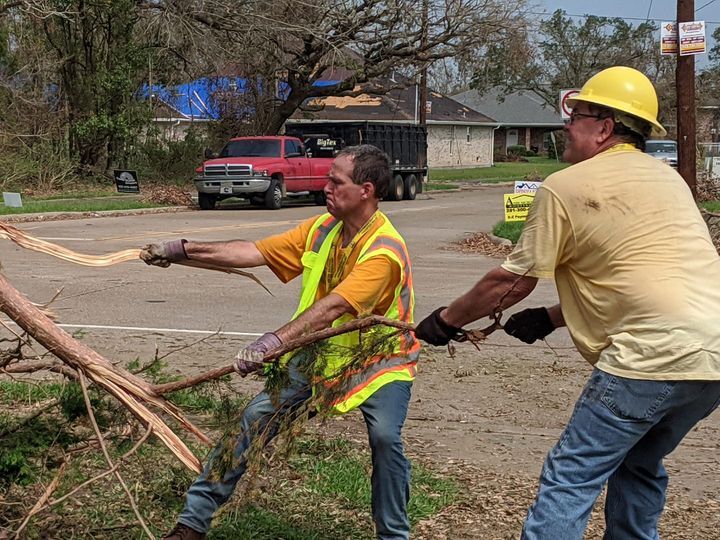Three weeks have passed since Hurricane Laura made landfall in Cameron, Louisiana. The Category 4 hurricane caused widespread damage as hundreds of thousands were left without power and water. Most of the homes in Lake Charles suffered damage. Many residents had no place to go or were forced to live in homes with damaged walls, missing roofs and holes caused by falling trees. Conditions were made even worse due to the oppressive heat and humidity as temperatures climbed over the century mark.
Arkansas Baptist Disaster Relief (DR) volunteers were ready to go as soon as they could safely deploy. The trip to Lake Charles provided a glimpse of what they would be experiencing once they arrived. Traffic was horrendous as many survivors were still fleeing and others were returning to survey the damage. Gas was readily available until the groups got near Alexandria. From that point on, it was in short supply as many stations were without electricity. Those stations lucky enough to have power also had lines that required hours of waiting.
Upon arriving in Lake Charles, the DR volunteers found power lines down and debris strewn everywhere. The church that would be hosting the teams was also without power. Fortunately, the leadership at Trinity Baptist Church in Lake Charles was proactive and had brought in a generator to run the family life center and the church kitchen. Even still, volunteers would be without running water which meant that there would be no showers and they would have to use portable toilets. In addition, phone lines were down, and cell service was almost non-existent.
The ABSC DR communications team went to work immediately setting up radio contact. Repeaters were used to increase the reach of the radios to a 35-mile radius. Cell phone companies soon brought in portable cell towers to help improve communications efforts, but service was still spotty.
Getting communications up and running was only the beginning of a long list of things that still needed to be done. Randy Garrett, Disaster Relief Coordinator for Arkansas, says that the logistics for a relief effort of this magnitude can be challenging especially in a situation where the infrastructure in the community has been wiped out. Getting needed supplies such as diesel, propane, water, and dumpster service on a regular basis is not easy. Garrett says that at one point they were feeding 15,000 meals a day and had no place to dispose of the trash. They had to stack it outside in piles until they could locate a dumpster.
Garrett says they are currently using about 200 gallons of diesel fuel a day to power generators and some of the heavy equipment. He recalls one day when the fuel tanks were almost empty. He says they had tried but could not find diesel fuel anywhere. As he was discussing this problem with one of the volunteers in the Incident Command Team (ICT) Garrett says there was a knock on the door. He opened the door to find a man standing there with a patch on his shirt that said Bubba Petroleum. The man introduced himself and said that his boss had sent him to fill up their tanks. Garrett asked him how much it would cost, and the man said, “No charge.” His boss had told him to come and was giving them the diesel for free. Just like that, God had answered their prayers and met their needs by providing 700 gallons of diesel at no cost.
Arkansas feeding teams began preparing meals for all of the DR volunteers as well as the First Responders who were also staying at the church. Arkansas DR teams brought enough food to provide 5000 meals. The rest of the food arrived in refrigerated trucks a couple of days later along with a dry truck full of paper goods and Cambros (high quality food containers similar to ice chests used to keep food warm as it is transported). This shipment came from the Red Cross through a long-standing partnership whereby the Red Cross provides the food, DR cooks the food and the Red Cross delivers the food to those in need.
In addition to providing meals to be served by the Red Cross, Arkansas DR volunteers set up serving lines each day at the church. Food is placed in individual clamshell takeout containers and set on tables in each of the serving lines. The public drives up, gets out of their cars and picks up as many clamshells of food as they need. Garrett says that each day two lines of cars stretch around the block at the church. Chaplains from various states are stationed in each line to engage the storm survivors as they pick up their food. This has led to numerous Gospel conversations which have resulted in over 100 salvation decisions. In all, Arkansas DR volunteers have seen over 160 professions of faith during their time in Louisiana. Each person making a decision fills out a response card. The DR teams keep one card and give two copies to the church. Trinity Baptist will do the follow up on each of the decisions made.
Since the start of the deployment, the DR response has moved beyond the buildings at Trinity Baptist Church to encompass the entire parking lot. In a short time, volunteers from several states have helped to build something resembling a small city. Currently 190 volunteers have taken up short term residence at the church. Two portable kitchens have been set up, allowing feeding teams to provide up to 20,000 meals a day. Two shower and laundry units are also on site as well as the Incident Command Trailer, an Arkansas Baptist DR refrigeration truck, a water purification system provided by the Texas Baptist Convention, and a 6,000-gallon potable water tank. Four generators, provided by Arkansas Baptist DR have been set up to power the housing areas, air conditioning units and portable kitchens.
Arkansas DR is responsible for site command for all the teams serving out of Trinity Baptist Church. In addition, they have also been tasked with providing area command for all of Louisiana. This means they are organizing all ongoing relief efforts in Louisiana from a command post set up at the ABSC offices in Little Rock. Garrett says the deployment may last until at least the middle of October.
Over 900 work requests have been submitted to this point. So far Arkansas DR volunteers have completed 546 assessments and 105 chainsaw and tarping jobs. Despite all of the challenges, Arkansas DR volunteers continue to willingly offer their time and efforts to serve the storm survivors in Louisiana. For these selfless servants, it’s worth whatever sacrifice they have to make in order to see people’s lives changed by the power of the Gospel. Garrett says, “It’s about the satisfaction you get from helping others in time of need and seeing the look on people’s faces when DR shows up with food, chaplains or teams to help on their property.”
Thank you for your faithfulness to give and pray. Please continue to pray for your Arkansas Baptists Disaster Relief volunteers as they serve. Pray for good weather and safety as they travel and as they work. Pray that water and electricity would be restored. Pray especially that more people would be saved, and that God would continue to do immeasurably more than we can ask or imagine.


